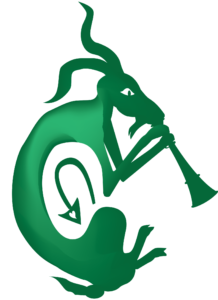by Julia C. Martinez | Denver Post | March 25, 1999
The city of Denver is getting a shipment of low- tech lawn mowers next week.
One hundred goats will arrive in town and be put to work controlling noxious weeds that have taken root in open space and wilderness areas around Denver.
The weeds are “like chocolate” to the goats, said Gayle Weinstein, the naturalist overseeing the project for the city’s Parks and Recreation Department.
“This program will enhance and make the city more beautiful,” she said.
City council members, who were briefed on the plan Wednesday, expressed amusement at the prospect of a furry army of goats in the big city.
“We’re ending the 20th century with some of the oldest frontier weed-eaters,” chuckled Councilman Hiawatha Davis.
The floppy-eared Kashmir goats, on loan from the farm of Lani Benz-Lamming in Alpine, Wyo., will begin their mission along the banks of the South Platte River and Cherry Creek and munch their way through the leafy spurge and other weeds that are muscling in on native plant life along both waterways. The goats naturally avoid eating the grass and native plants, preferring the noxious weeds instead, Weinstein said.
The goats will be returned to the same areas in mid-summer and in the fall to eat the weeds before they go to seed and regenerate. Meanwhile, the riverbanks will be reseeded with native plants, which the goats will work into the soil with their hooves as they graze.
Up to now, the goats have been used in rural areas outside Boulder, Grand Junction and other areas. This will be their first foray into the urban jungle, Weinstein told the Denver City Council’s Public Works and Amenities Committee on Wednesday.
The goats are small, easy to handle and people-friendly. They will be cared for by goat herders who will erect mesh fences to keep them confined to particular areas. At night, they will be returned to designated camps for safekeeping. Weinstein said the goats are cost-effective and safer for the environment than pesticides, which can get into the soil and waterways. The goats can cover target areas of land and will reduce the need for staff and big machinery. Weeds such as leafy spurge seriously threaten native habitats, Weinstein said. They push out native vegetation, which allows harmful insects to thrive, causes erosion and does other damage.
She said some of the undesirable weeds and plants hitchhiked into Colorado on people’s clothing and the tires of their cars. Some came from as far away as Europe and Asia, she said.
Others started as crops or horticultural plants and simply got out of hand, she said.
Officials hope the program, which costs $50,000, will restore Denver’s wilderness space to its former beauty and make it healthier along the way, Weinstein said.
The program also aims to attract wildlife back to the city’s 2,200 acres of designated natural areas.
If this year’s program is successful, the goats could be returned to Denver in future years.
Councilman Davis suggested that other areas of the city might also benefit from the hooved vacuum cleaners.
“I’ve heard that goats eat all kinds of things,” Davis said. “Maybe we can get a herd of goats to eat their way through the city’s worst alleys.”
